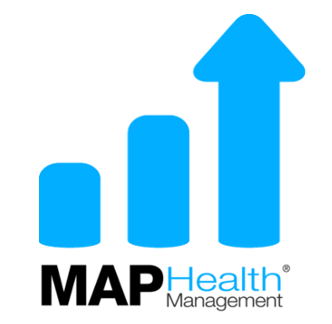MAP BRCA Listed as Behavioral Healthcare Instrument by Joint Commission
October 13, 2020 Austin, Texas - Oct 13, 2020 - We are excited to announce that the MAP Care Solutions Brief Recovery Capital Assessment (MAP BRCA) is now listed as a Behavioral Healthcare Instrument by The Joint Commission. MAP and its partners are now in position to utilize a Joint Commission listed Behavioral Healthcare Instrument to gather patient outcomes in an effort to monitor and improve patient’s lives and to inform treatment practices with outcomes data.
Austin, Texas - Oct 13, 2020 - We are excited to announce that the MAP Care Solutions Brief Recovery Capital Assessment (MAP BRCA) is now listed as a Behavioral Healthcare Instrument by The Joint Commission. MAP and its partners are now in position to utilize a Joint Commission listed Behavioral Healthcare Instrument to gather patient outcomes in an effort to monitor and improve patient’s lives and to inform treatment practices with outcomes data.
On the MCS BRCA Development: Over several years, MAP has refined its method of collecting data as well as the questions Peer Recovery Support Specialists (PRSSs) ask Persons in Recovery (PIRs). The initial design of MAP questions, starting in 2011, was asked to assess a PIR’s risk of relapse. The refining, culling, and narrowing process revealed several items/questions predictive of a PIR’s likely success in engaging in the MAP program as well as maintaining their recovery. This refining process also revealed the importance of PIRs developing “Recovery Capital” and the importance of the quality of the connection/relationship a PIR has with their PRSS as being predictive of success.
MAP has created a measure of recovery capital; MAP’s Brief Recovery Capital Assessment (MCS BRCA). This measure is informed by past MAP question sets and analyses, the recovery literature specifically related to recovery capital and social capital, experts within MAP, and feedback from MAP’s Peer Recovery Support Specialists (PRSSs).
To learn more about MAP and Recovery Capital visit:
https://thisismap.com/prs/recovery-capital
The Joint Commission Behavioral Healthcare Instruments Listing:
https://manual.jointcommission.org/BHCInstruments/...
About MAP Health Management
From its inception in 2011, MAP's mission has been to improve outcomes for the millions of people annually diagnosed and treated for the chronic disease of addiction, formally referred to as Substance Use Disorder. MAP delivers a much-needed long-term support model by deploying a suite of proprietary solutions including tech-enabled peer recovery support services, an adaptive engagement framework, and outcomes reporting – all designed to improve health outcomes for individuals and reduce preventable healthcare cost. For more information, visit https://thisismap.com.

